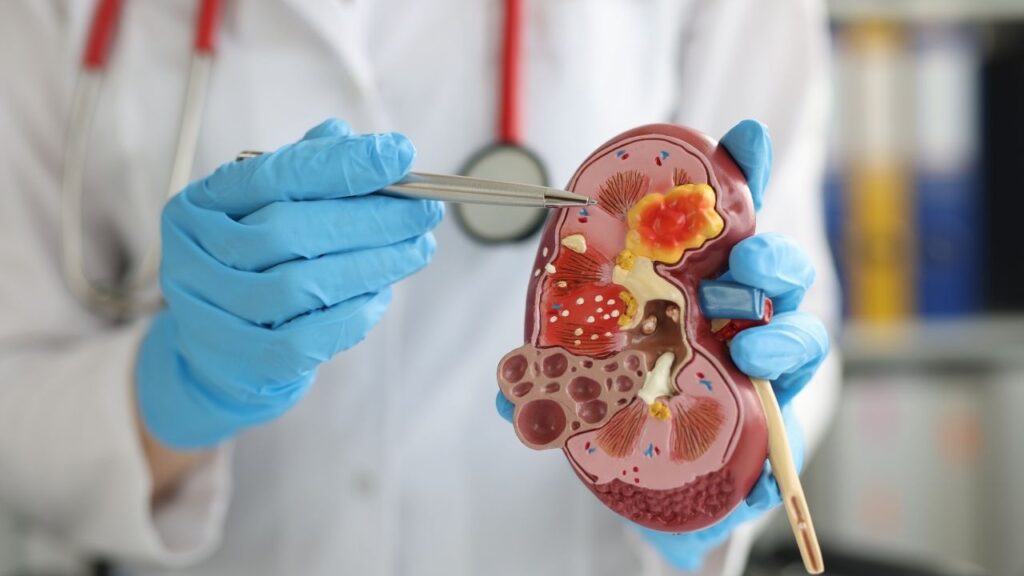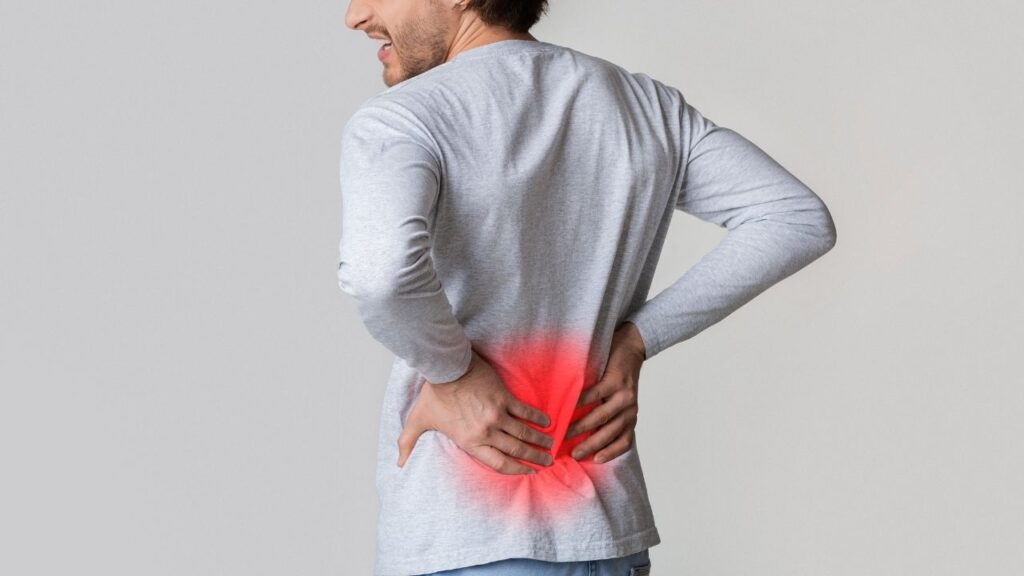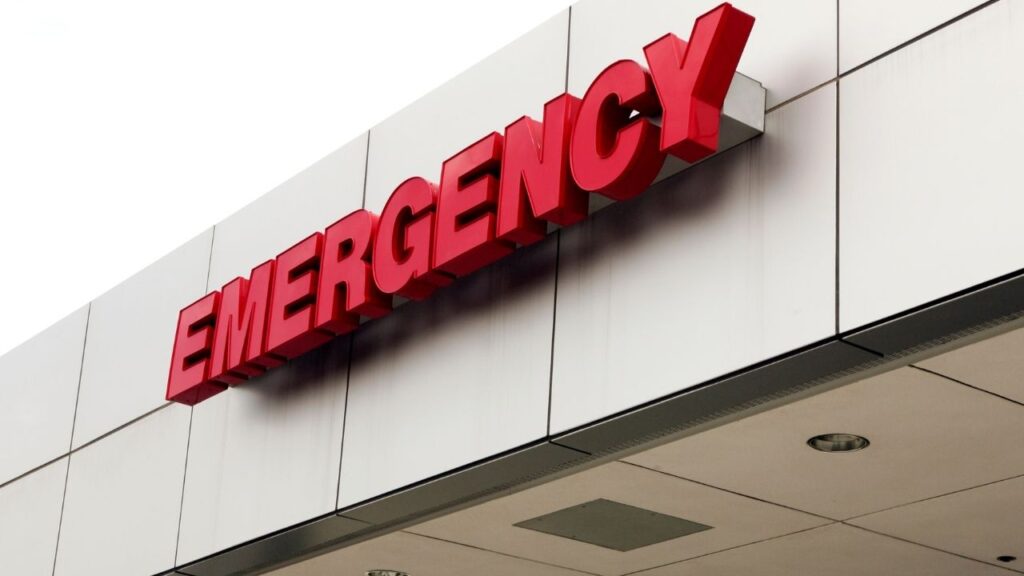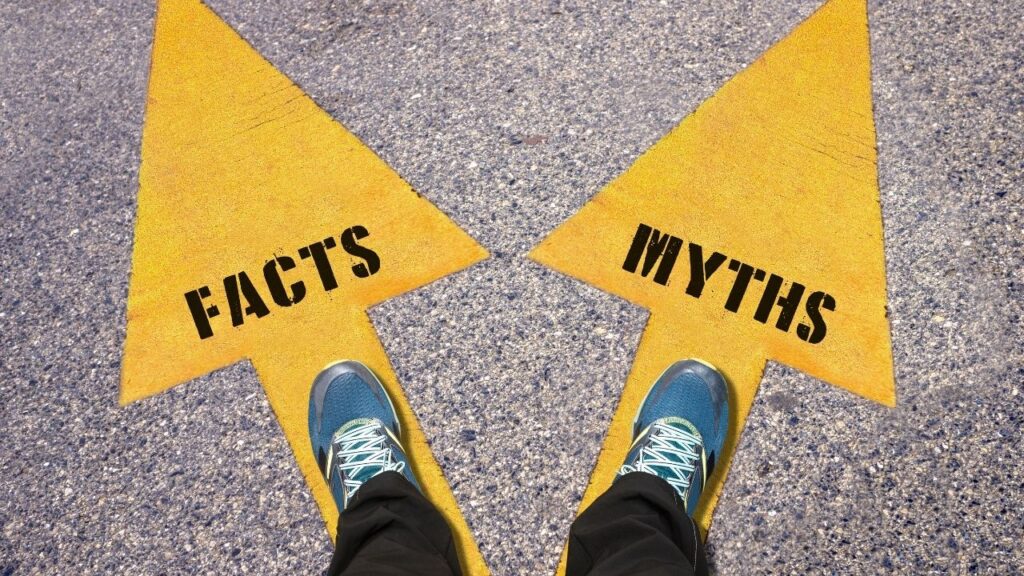Best Kidney Stone Treatment Hospital in Chandigarh | No Cut, No Stitches Kidney Stone Removal Treatment in Chandigarh
Best Kidney Stone Treatment Hospital in Chandigarh
Kidney stones are a widespread and often painful health issue affecting people of various age groups, from adolescents to elderly individuals. These stones form when certain substances in the urine such as calcium, oxalate, and uric acid—become highly concentrated and crystallize inside the kidneys. Over time, these crystals may grow into larger stones, which can obstruct the urinary tract, leading to sharp pain, urinary infections, or even kidney failure in extreme cases.
With the increasing prevalence of kidney stones in India, particularly in regions with hot climates like Chandigarh, the need for advanced urological care has surged. A top hospital for kidney stone treatment must combine expert urologists, cutting-edge diagnostic facilities, and a comprehensive range of both surgical and non-surgical treatment options. Chandigarh, as a progressive medical hub, offers several state-of-the-art facilities that specialize in kidney stone management with high success rates.

Kidney Stones Removal in Chandigarh
In Chandigarh, the incidence of kidney and gall bladder stones is on the rise, influenced by environmental factors like heat, dehydration, and dietary patterns. The city’s semi-arid climate contributes to fluid loss through sweating, which, when not compensated by sufficient water intake, increases the risk of stone formation. Moreover, local dietary trends high in salt, sugar, and animal protein are known contributors to urolithiasis (stone disease).
Stones can vary in size, location, and composition. Treatment strategies are carefully tailored to these parameters. In Chandigarh, kidney stone removal procedures are available using the most recent technologies, ensuring patients get prompt, safe, and minimally invasive care.
Common Kidney Stone Removal Options Include:
Medical Management : Ideal for stones smaller than 5 mm. It includes hydration therapy (drinking 2.5–3 liters of water daily), pain relief medication (NSAIDs) and alpha-blockers that help widen the ureters for stone passage.
Laser Lithotripsy : A non-invasive method that uses laser energy to disintegrate stones into smaller fragments for natural expulsion through urine.
Ureteroscopy (URS) : Involves inserting a thin scope through the urinary tract to visualize and break or retrieve the stone. It is highly effective for mid-to-lower ureteral stones.
RIRS (Retrograde Intrarenal Surgery): A flexible ureteroscope is inserted through the urethra and up to the kidney. This is used for stones located in complex or difficult-to-access regions of the kidney.
PCNL (Percutaneous Nephrolithotomy): Recommended for stones larger than 2 cm or staghorn calculi. A small incision is made in the back to remove stones directly from the kidney. It is considered the gold standard for large stones.
What Are Common Causes of Kidney Stones
Kidney stones (renal calculi) can form when urine contains more crystal-forming substances than the fluid in the urine can dilute. While dehydration remains the most dominant cause, multiple other risk factors may be involved, and often, stones are the result of a combination of dietary, environmental, and genetic influences.
Primary Causes Include:
Dehydration : A major contributor. When urine becomes concentrated, it increases the chances of crystallization of calcium, oxalate, and uric acid.
Diets High in Oxalate : Foods such as spinach, rhubarb, almonds, chocolate, and sweet potatoes increase oxalate levels in urine.
Excessive Salt or Protein Intake : High sodium causes more calcium to be excreted in the urine, while a high-protein diet increases uric acid production.
Obesity and Metabolic Syndrome : These conditions alter urine chemistry and increase the likelihood of stone formation.
Urinary Tract Infections : Especially those caused by urease-producing bacteria, which can lead to the formation of struvite stones.
Genetic Predisposition : A family history of stones significantly raises your risk.
Certain Medications or Supplements : Overuse of calcium or vitamin D supplements, and prolonged use of diuretics, can increase stone risk.
Types Of Kidney Stones
Identifying the type of kidney stone is essential for determining the most effective treatment and planning long-term preventive strategies. Each type has a unique cause and requires specific dietary and therapeutic approaches. Types of kidney stones include:
Calcium Oxalate Stones: These account for nearly 70-80% of all kidney stones. They form when oxalate binds to calcium in urine, especially in dehydrated individuals.
Calcium Phosphate Stones: These stones tend to form in individuals with high urinary pH and are associated with medical conditions like renal tubular acidosis.
Uric Acid Stones: These develop in people who have persistently acidic urine. They are more common in those who consume high amounts of animal protein or suffer from gout.
Struvite Stones: These infection-related stones form quickly and can grow large, often resulting from chronic urinary tract infections caused by bacteria that increase urine alkalinity.
Cystine Stones: These are rare and occur in people with a hereditary disorder called cystinuria, in which the kidneys excrete excess cystine, an amino acid that forms stones.

Common Symptoms of Kidney Stones
Kidney stones often go unnoticed in early stages until they start moving within the urinary tract. As they obstruct urine flow or irritate the urinary lining, symptoms become more prominent and painful.
Key Symptoms to Watch For:
- Sudden, severe pain in the lower back or side, radiating to the abdomen or groin
- Pain during urination, indicating ureteral stone passage
- Persistent urge to urinate with small amounts of urine each time
- Hematuria (blood in urine), which can be pink, red, or brown
- Nausea and vomiting, often due to the pain or associated infection
- Cloudy or foul-smelling urine, suggesting urinary infection
- Fever and chills, a sign of potential complications like sepsis or pyelonephritis
What Kind of Pain Does Kidney Stones Cause
The pain caused by kidney stones, known as renal colic, is one of the most intense forms of pain reported in medical literature. It typically occurs as the stone moves from the kidney into the ureter, causing spasms and pressure buildup.
Characteristics of Renal Colic Pain:
- Sharp and stabbing rather than dull
- Starts in the side or back, and may radiate to the lower abdomen, bladder, or genital area
- Waxes and wanes comes in waves
- Often associated with nausea, vomiting, or cold sweats
- Unrelieved by body movement, unlike muscle or joint pain
The pain can be so severe that it may mimic conditions like appendicitis or gastrointestinal obstruction, making accurate diagnosis vital.

How to Know If You Need Immediate Medical Attention for Kidney Stones
While some kidney stones can be managed at home, certain symptoms indicate a medical emergency. Delayed treatment in these cases can result in irreversible kidney damage, severe infections, or septicemia.
Seek Emergency Care If You Have:
- Uncontrollable or escalating pain, especially with no relief from oral medications
- Visible blood in urine
- Fever above 101°F (38.3°C)
- Persistent vomiting and inability to keep fluids down.
- Complete blockage or inability to urinate or passing only a few drops
What Tests Are Done to Diagnose Kidney Stones?
To identify the size, location, and type of stone, several diagnostic tests are utilized. These also help assess kidney function and detect infections.
Key Diagnostic Tests Include:
- Urinalysis : Detects blood, crystals, bacteria, and pH levels.
- Blood Tests : Check for uric acid, calcium, creatinine, and markers of kidney health.
- X-ray KUB : Basic imaging to identify radiopaque stones like calcium stones.
- Ultrasound Abdomen : Preferred in children, pregnant women, or patients avoiding radiation.
- Non-contrast CT Scan (NCCT) : Gold-standard imaging for detecting stones of all compositions, even those missed on X-ray or ultrasound.
Kidney Stone Treatment in Chandigarh At Amcare Hospital
Kidney stone treatment in Chandigarh has significantly advanced with the availability of state-of-the-art urology centers offering both non-invasive and surgical interventions. At the forefront of this progress is Amcare Hospital, which provides individualized care based on stone size, type, location, and the patient’s overall health status.
Non-Surgical Treatment Options:
- Medical Expulsive Therapy: For small stones under 5 mm, hydration and medications like tamsulosin are prescribed to aid spontaneous passage. Pain is managed using NSAIDs, and lifestyle advice is provided to prevent recurrence.
- Extracorporeal Shock Wave Lithotripsy (ESWL): A non-invasive procedure where focused sound waves are directed at the stone to fragment it into smaller pieces, which can then be passed naturally. It’s ideal for stones located in the kidney or upper ureter.
- Laser Lithotripsy (RIRS): A flexible ureteroscope is inserted through the urethra to reach the kidney, and a laser fiber is used to break the stone into fine particles or “dust,” which is then flushed out with urine.
Surgical Treatment Options:
- Ureteroscopy (URS): A minimally invasive approach where a small instrument is passed through the urethra to reach the ureter and remove or break the stone.
- Percutaneous Nephrolithotomy (PCNL): Recommended for stones larger than 2 cm or complex staghorn calculi. A tiny incision is made in the back, and a nephroscope is used to extract the stone fragments.
- Laparoscopic Stone Surgery: Rarely required, but an option for stones in difficult anatomical locations or for patients with anatomical abnormalities of the urinary tract.
Why Amcare Stands Out as Best Kidney Stone Treatment Hospital in Chandigarh
What makes Amcare Hospital a leading choice for kidney stone treatment in Chandigarh is its patient-centered approach, clinical precision, and technology-driven protocols. Here’s why it’s recognized among the best hospitals for kidney stone removal in the region:
- Expert Urologists and Nephrologists : A team of trained specialists with years of experience in handling complex stone cases.
- Advanced Laser Technology : Use of high-power Holmium, YAG lasers and flexible ureteroscopes for precision and minimal discomfort.
- 24/7 Emergency and ICU Support : Ensuring prompt care even during complications like infected obstructed kidneys.
- Modular Operation Theatres : NABH-compliant, sterile, and fully equipped surgical suites for urological procedures.
- In-House Imaging and Labs : CT scan, ultrasound, urinalysis, and blood tests, done quickly for faster diagnosis.
- Pre and Post-operative Care: Comprehensive care plans that include pain management, hydration protocols, and dietary guidance.
- EMI and Insurance Support : Cashless hospitalization options and affordability through easy monthly installment plans.
- Free Second Opinions : For patients seeking reassurance or clarity before making treatment decisions.
Benefits Of Kidney Stone Treatment in Chandigarh At Amcare Hospital
Choosing Amcare for kidney stone treatment comes with multiple benefits that prioritize efficiency, safety, and long-term results:
Rapid Diagnosis & Timely Intervention : Reduced wait times thanks to on-site diagnostic capabilities.
Day-Care Procedures : Many treatments, like RIRS and URS, allow same-day discharge, minimizing hospital stay.
Comprehensive Care : From nephrology to dietetics, patients receive integrated care under one roof.
Tailored Treatment Plans : Individualized based on stone analysis, comorbidities, and patient preferences.
Preventive Counseling : Long-term stone prevention with diet modification, hydration tracking, and metabolic evaluation.
High Patient Satisfaction Rates : Testimonials and clinical outcomes reflect excellent success rates and low complication risks.

Patient Journey at Amcare Hospital – What to Expect
Patients undergoing kidney stone treatment at Amcare experience a structured and transparent care pathway, designed for maximum comfort and clarity:
Initial Consultation : A detailed discussion with a urologist about symptoms, lifestyle, and previous medical history.
Diagnostic Testing : Immediate in-house blood tests, urine analysis, and imaging (CT/Ultrasound/X-ray) are conducted.
Treatment Planning : A customized approach is developed, ranging from medications to minimally invasive procedures.
Procedure Day : Most treatments are done with minimal anesthesia, and recovery begins the same day.
Recovery and Discharge : Depending on the procedure, discharge happens on the same or next day.
Follow-Up Visits : Monitoring to ensure stones have cleared and no new stones are forming.
Diet and Lifestyle Counseling : Patients receive advice tailored to their stone type, hydration goals, and metabolic risk factors.
Diet Tips After Kidney Stone Treatment
Following the right diet after stone removal is critical to prevent recurrence, which is common in 50% of patients within 5–10 years without lifestyle changes.
Dietary Recommendations Post-Treatment:
- Stay Hydrated: Drink 2.5–3 liters of water daily unless contraindicated.
- Reduce Salt Intake: High sodium increases calcium excretion in urine.
- Limit Oxalate-Rich Foods: Avoid spinach, nuts, chocolate, and beets.
- Include Citrus Fruits: Lemon and orange juice increase citrate levels, which inhibit stone formation.
- Cut Down on Animal Protein: High protein intake increases uric acid and lowers citrate.
- Avoid Sugary and Carbonated beverages because it can cause urine acidic in nature.

Myths and Facts About Kidney Stones
Myths | Facts |
Drinking milk causes kidney stones | Calcium from dietary sources helps bind oxalate, reducing stone risk |
Kidney stones always require surgery | Small stones often pass with medication and hydration |
Beer helps in flushing out kidney stones | Alcohol may worsen dehydration, increasing stone formation |
Kidney stones only affect men | Women are equally at risk, especially with recurrent UTIs |
Once treated, stones won’t return | Without preventive measures, recurrence is common |
Only hard water causes stones | Stone formation is multifactorial, not just about water |
Final Thoughts
If you’re suffering from kidney stone symptoms or have been diagnosed with one, choosing the best kidney stone treatment hospital in Chandigarh is crucial for long-term relief and prevention of complications. A quality hospital should offer:
- Precise diagnosis
- Experienced specialists
- Advanced surgical and non-surgical options
- Post-treatment preventive strategies
- Transparent care and affordability
With its commitment to advanced care, ethical practices, and patient-first philosophy, Amcare Hospital has earned its place as one of Chandigarh’s top-rated centers for kidney stone treatment. Whether it’s your first stone or a recurrent case, the right care can make all the difference in your recovery and quality of life.
